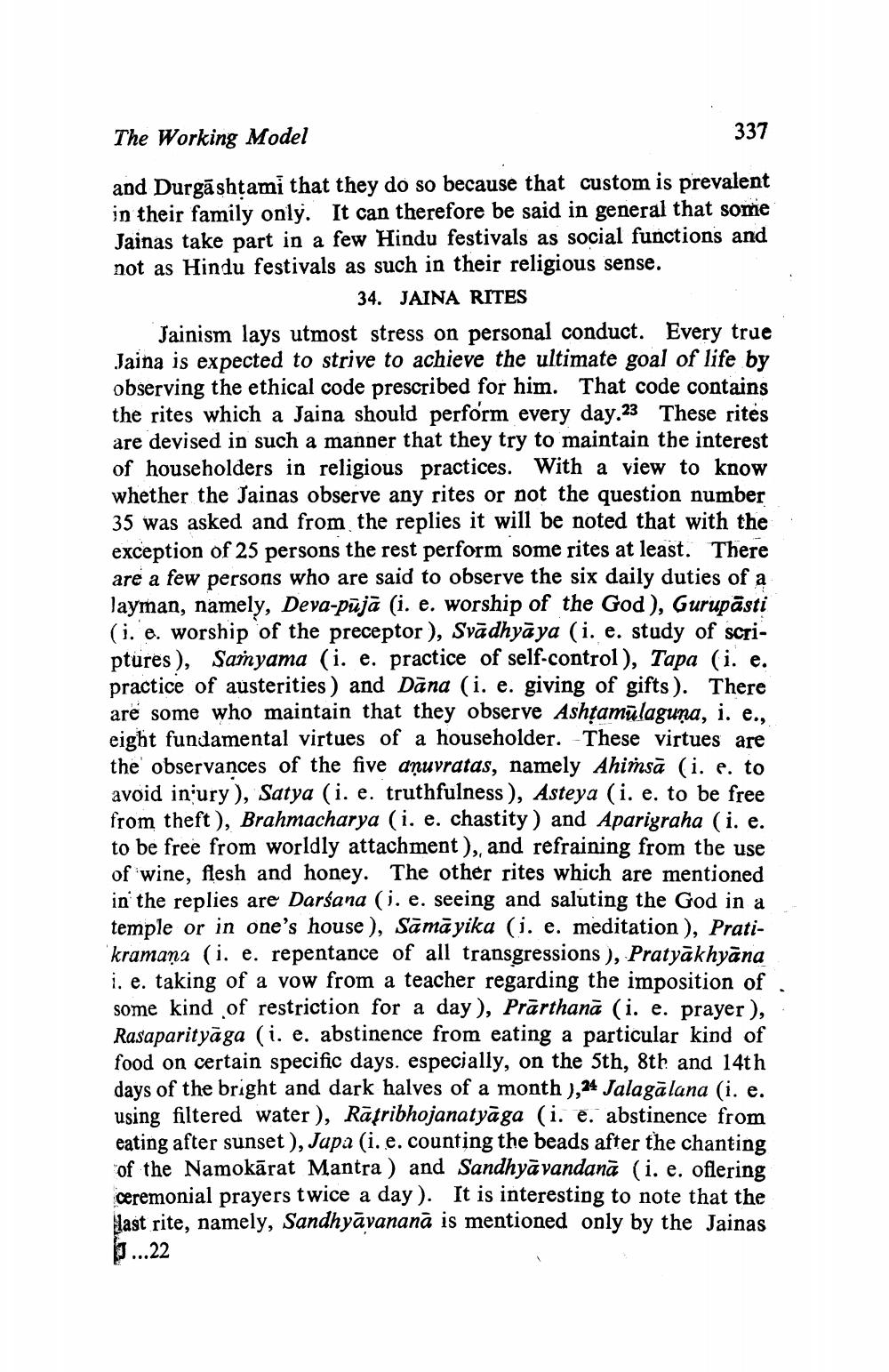________________
337
The Working Model
and Durgashtami that they do so because that custom is prevalent in their family only. It can therefore be said in general that some Jainas take part in a few Hindu festivals as social functions and not as Hindu festivals as such in their religious sense.
34. JAINA RITES
Jainism lays utmost stress on personal conduct. Every true Jaina is expected to strive to achieve the ultimate goal of life by observing the ethical code prescribed for him. That code contains the rites which a Jaina should perform every day.23 These rites are devised in such a manner that they try to maintain the interest of householders in religious practices. With a view to know whether the Jainas observe any rites or not the question number 35 was asked and from the replies it will be noted that with the exception of 25 persons the rest perform some rites at least. There are a few persons who are said to observe the six daily duties of a layman, namely, Deva-puja (i. e. worship of the God), Gurupāsti (i. e. worship of the preceptor), Svādhyāya (i. e. study of scriptures), Samyama (i. e. practice of self-control), Tapa (i. e. practice of austerities) and Dana (i. e. giving of gifts). There are some who maintain that they observe Ashtamulaguna, i. e., eight fundamental virtues of a householder. These virtues are the observances of the five aṇuvratas, namely Ahimsa (i. e. to avoid injury), Satya (i. e. truthfulness), Asteya (i. e. to be free from theft), Brahmacharya (i. e. chastity) and Aparigraha (i. e. to be free from worldly attachment),, and refraining from the use of wine, flesh and honey. The other rites which are mentioned in the replies are Darśana (i. e. seeing and saluting the God in a temple or in one's house), Sāmāyika (i. e. meditation), Pratikramana (i. e. repentance of all transgressions), Pratyakhyāna i. e. taking of a vow from a teacher regarding the imposition of some kind of restriction for a day), Prarthana (i. e. prayer), Rasaparityaga (i. e. abstinence from eating a particular kind of food on certain specific days. especially, on the 5th, 8th and 14th days of the bright and dark halves of a month ), Jalagālana (i. e. using filtered water), Ratribhojanatyaga (i. e. abstinence from eating after sunset), Japa (i. e. counting the beads after the chanting of the Namokarat Mantra) and Sandhyavandana (i. e. offering ceremonial prayers twice a day). It is interesting to note that the last rite, namely, Sandhyāvananā is mentioned only by the Jainas ...22




